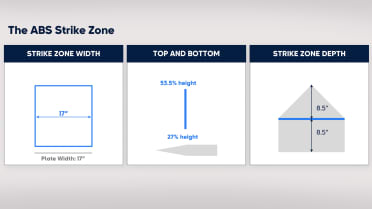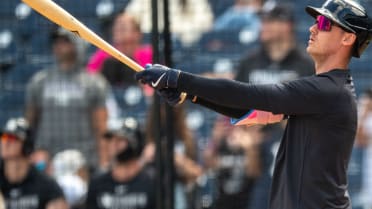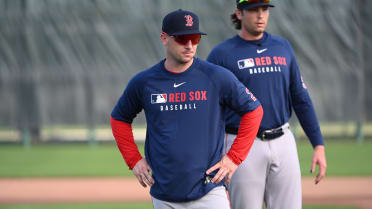Trea: Shortstop 'so much more normal and natural'
GLENDALE, Ariz. -- After playing the majority of his career at shortstop, Trea Turner had to make a quick transition to second base once he was traded to the Dodgers from the Nationals last July.
Turner, who had previous experience at second base, handled the move well, showing his elite athleticism. But when Corey Seager signed a lucrative 10-year, $325 million deal with the Rangers this offseason, Turner knew he was the next man up at shortstop for the Dodgers.
“We’re gonna miss [Seager],” Turner said. “But for me individually, I’m excited to play shortstop again. Feels so much more normal and natural. Felt like I was almost playing left-handed at second base, but it’ll be good to prove that I can play it at a high level and ... one of my focuses this Spring Training is getting ground balls over there, putting in the reps and getting ready for that.”
While Turner said he still has things to prove this season, the Dodgers already view him as one of the top shortstops in the league. Over the last six seasons, Turner has posted a .304 batting average and is the only player in the Majors to have 100 or more homers and 200 or more stolen bases during that span.
That level of production has Turner on track to be the top free-agent shortstop next winter. The only way that doesn’t become a reality is if Turner decides to sign a contract extension with the Dodgers. He mentioned on Monday that he would be open to talking this spring.
“I think this organization, like I said from day one, this is unbelievable,” Turner said. “The time I’ve spent here has been a lot of fun. And I think it’s definitely a place that I can be long term. Whether that happens or doesn’t happen is another question, but I’ve had a lot of fun. I enjoy it. It’s a great place to play. It’s a great city.”
Turner said the Dodgers and his representatives had one quick phone call before the lockout, but the two sides have not had serious talks about an extension yet. His preference, like most players in a similar situation, is to try and wrap up extension talks before the start of the regular season.
“I can have a talk if somebody wants to have a talk,” Turner said. “If not, I’m ready to play and ready to go out there and do what I’ve done for the last however many years. Like I said in the past, I’ll have talks. But if they’re not going to happen or if they don’t or they do, I’m not worried about them.”
Turner did, however, admit that a decision on a long-term deal is something he has thought about often. He turns 29 in June. Assuming it’s a long-term contract, his next deal could likely be his last. Logistics play a role in a decision that affects the rest of his career. Turner is originally from Florida, but he hasn’t indicated playing close to home as a key factor in his decision, at least not yet.
“I don’t know if you really know anything until you make the decision and you go through it,” Turner said. “But that’s why I always try to gather as much information as possible, let things play out and don’t guess. You talk to your family and talk to your wife and what’s best for you, your wife, your kids and your situation and you make the best decision you can. I’ll gather information, see what happens.”




